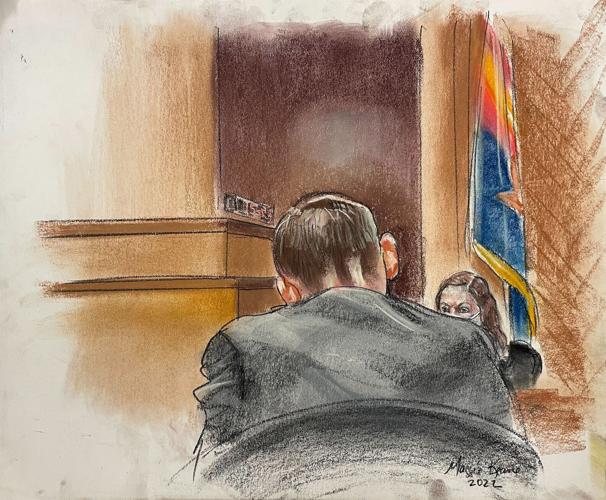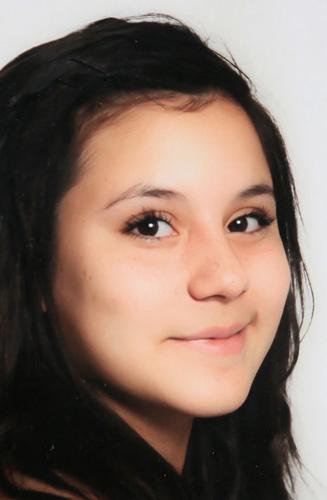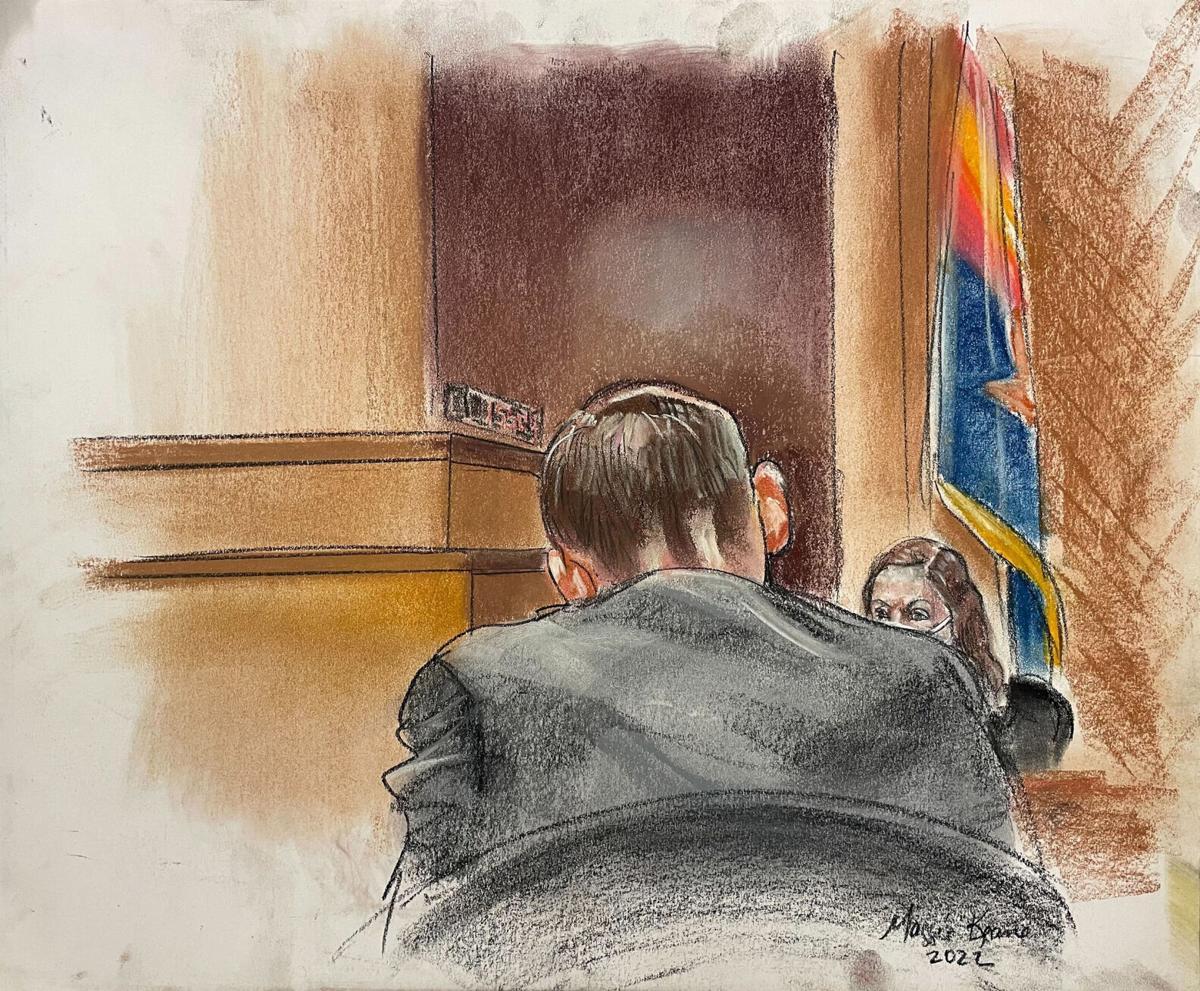While there's no eyewitness or videotape connecting Christopher Clements to 13-year-old Maribel Gonzalez's 2014 abduction and slaying, there is a "mountain of circumstantial evidence" that points to his guilt, prosecutors said Wednesday during closing arguments at his trial.
"I can’t tell you why he abducted Maribel Gonzalez on the night of June 3 and I can’t tell you why he killed her... but we have proven to you over the last two weeks that he is guilty," Deputy Pima County Attorney Tracy Miller told jurors. "It is not a coincidence that all these pieces of the puzzle point directly to Christopher Clements."
Clements' trial began Sept. 13 in Pima County Superior Court. The 40-year-old convicted sex offender is charged with first-degree murder and kidnapping in connection with Maribel's death.
He's also facing charges in connection with 6-year-old Isabel Celis' kidnapping and death. That trial is slated for February. Isabel went missing in 2012. Both cases went unsolved for years until law enforcement leaders announced Clements' arrest in both in September 2018.
"Maribel should have been able to safely walk to her friend’s house. It's hard to imagine and wrap our heads around the idea that there are people, there is someone that would abduct a 13-year-old and murder her," Miller said, adding that from the evidence, "you know exactly who murdered Maribel Gonzalez, and that was Christopher Clements."
Miller reminded the jurors of the DNA evidence found on Maribel's body that can't exclude Clements as a suspect in her killing, cell phone records that showed Clements traveled to the vicinity where Maribel's body was left in the desert, and related searches on his computer in the years that followed her death.
Miller also brought up the testimony of Clements' ex-girlfriend, who told the jury that he left the house around the same time Maribel left her own home, returned to his house briefly on a search for bleach, and then left for the rest of the night.
The prosecution believes Clements encountered Maribel walking down the road after he left his house the first time. Some sort of struggle ensued, during which he suffocated the teen and put her body in his trunk, they contend. He returned home to get bleach, traveled to a remote desert area in Avra Valley to leave Maribel's body, and turned off his phone for several hours, Miller said.
She said this gave him plenty of time to dispose of Maribel's body, get rid of her clothing and personal evidence and remove any trace evidence from his trunk.
Miller told the jurors they can consider other evidence when deciding Clements' guilt, pointing to dozens of photos of girls on Clements' computer, some of whom were scantily clad and others whom police were able to identify in Tucson.

Maribel Gonzalez
"The motive — being attracted to little girls — explains why he would have stopped and picked up Maribel on the side of the road. The opportunity he creates when he interacts with little girls in our community," Miller said. "The state doesn’t have to prove motive, we don’t have to tell you why, but we absolutely did provide you with evidence of motive in this case that you can consider."
Clements' defense attorney, Joseph DiRoberto, focused much of his closing argument on what the state hasn't proven, which he said includes that Maribel's death was even a homicide.
Her cause of death was ruled homicide by unspecified means, but DiRoberto reminded the jury his forensic expert testified that if she had quickly died of an overdose, the substance would not have had time to make its way to Maribel's spleen — the site of the sample for her autopsy toxicology screen.
If the jury believes there's a possible alternative cause of death than the prosecution's theory, that's reasonable doubt, DiRoberto said.
"If the state cannot prove beyond a reasonable doubt that Maribel was killed, murdered, how is it even possible that Mr. Clements can be guilty of intentional, premeditated murder?" DiRoberto asked. "There's no known scientific evidence that Mr. Clements committed this crime. There's no witness to this crime, no evidence, no confession."
DiRoberto challenged the validity of the state's DNA and cell phone tracking evidence, saying defense experts proved they left room for doubt. He also questioned the credibility of Clements' ex-girlfriend's testimony.
He pointed to the photos of girls on Clements' computer, saying prosecutors spent so much time on evidence that's unrelated to Maribel's death because their evidence related to the crime is "riddled with doubt."
He suggested the teen was living a "fast life" that exposed her to danger.
"She was going out on the streets of Tucson at night, a young girl. … Anything is possible and there’s nothing between the time she left the apartment and the time she was found, there’s nothing," DiRoberto said. "We don’t know where she was, who she was with, where she got where she was. There’s this void in the evidence."
DiRoberto presented jurors with a scenario he said would help them determine if there was reasonable doubt in the case.
"Assume that you were to learn after having heard all the evidence in this case that there was a complete videotape of the incident involving Maribel," he said. "If you think you’d really like to see that videotape before deciding to convict Mr. Clements, I would suggest you have reasonable doubt about Mr. Clements' guilt."
To secure a conviction of first-degree murder, the state has to prove the crime was either premeditated or considered "felony murder."
Judge James Marner explained to the jury in his final instructions before they began deliberating late Wednesday that premeditation requires a decision to kill, reflection on that decision, and acting on the decision. “Felony murder” in this case would be a murder committed in the course of a kidnapping, which Arizona law defines as restraining someone with the intent to do physical harm or aid in the commission of a felony.
Clements was initially facing the death penalty if convicted, but Pima County Attorney Laura Conover announced in April that she would no longer pursue the death penalty in any case, following through on a 2020 election campaign promise.
If convicted of first-degree murder, Arizona sentencing laws show Clements will receive a term of natural life or life in prison. Natural life means Clements would be behind bars until his death. A life sentence is usually a term of 25 years, but because Maribel was younger than 15, if Clements receives a life sentence, he’ll spend at least 35 years in prison.
With the end of the trial expected Wednesday, witnesses for Christopher Clements called into question DNA and phone-tracking evidence. Clements said Tuesday he would not take the stand.
A digital forensic examiner told jurors about a secret app that was downloaded on iPads of Christopher Clements, who is charged with killing two Tucson girls.
A forensic expert testified that Maribel Gonzalez may have been suffocated, despite the lack of any signs of physical injury to her body.









